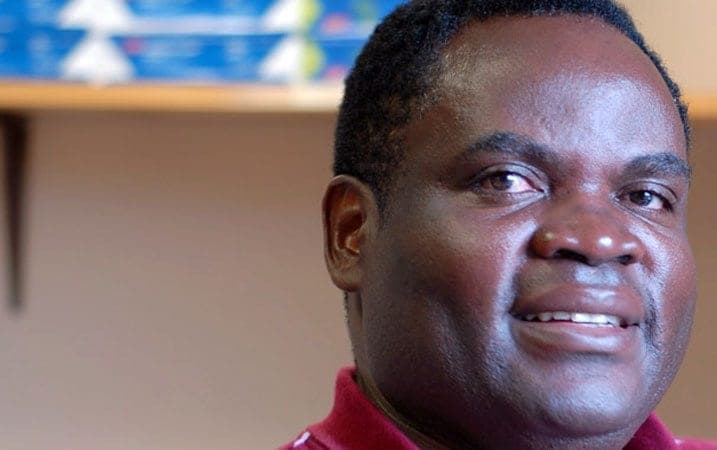ROME — Around midnight on Sunday, a dozen armed men wearing uniforms of the army of the Democratic Republic of Congo burst into a social center called “My Beautiful Village,” located in the North Kivu region of the country bordering Rwanda and Uganda, where a meeting for peace involving traditional tribal chiefs was underway.
Their target was a Catholic priest named the Rev. Vincent Machozi, a member of a religious order known as the Augustinians of the Assumption, who operated an influential website documenting atrocities committed against his Nande people, also known as the Yira after the language they speak.
Machozi used the site to denounce what he saw as collusion among political elites, armed factions, and commercial interests in what he termed the “Balkanization” of the region in order to exploit its natural resources, especially its rich coltan deposits. Since 2010, so much violence has been unleashed on the Yira — often in grotesque fashion, including beheadings by machetes — that activists such as Machozi have referred to it as a “genocide.”
Machozi died early Monday amid a hail of bullets, with his last words reportedly being, “Why are you killing?”
The question was mostly rhetorical, since Machozi, 51 at the time of his death, had survived seven previous attacks since his return to the country in 2012 after almost a decade of exile in the United States.
According to the Rev. Emmanuel Kahindo, the Rome-based vicar general of the Assumptionist order and a fellow Congolese, Machozi knew the end was likely at hand, telling him last October: “My days are numbered. I will be murdered, I feel it … but like Christ, for the sake of our people, I will not be silent.”
“I will continue my fight to the end and continue to condemn all those who sow division and hatred between ethnic groups in the region to rule and continue to exploit the riches,” the superior quoted him as saying.
Interestingly, Machozi’s name means “son of tears,” given him by his mother as a reference to the fact that several of his brothers and sisters died in childbirth.
In effect, Machozi is the latest casualty in what I termed in a 2013 book a “global war on Christians,” meaning an epidemic of anti-Christian violence on a vast enough scale to be called a “war,” and sufficiently widespread to be termed “global.”
Hard numbers are elusive, in part due to the impossibility of putting observers on the ground in the zones of greatest danger. Best-guess estimates, however, hold that annually, one Christian is killed for motives linked to the faith anywhere from every five minutes to every hour.
Christians are not the only ones suffering, but their numbers mean that in raw terms, they are the world’s most persecuted religious body. Yet the faith’s greatest growth is coming in places such as Congo, where the risk of violent conflict is also highest.
Machozi’s murder confirms two fundamental insights about the threats facing Christians in the early 21st century.
First, it shows that these threats are global in scope. While the world today is rightly focused on what the United States has now officially recognized as the “genocide” being perpetrated by ISIS against Christians and other minorities in Syria, Iraq, and Libya, the equally lethal risks being run by Christians in places such as sub-Saharan Africa, Asia, and other parts of the planet often are covered by silence.
Second, the murder of Machozi also underlines the inadequacy of traditional Christian concepts of what counts as “martyrdom.”
Over the centuries, Catholicism has held that in order to be seen as a martyr, someone had to die in odium fidei, meaning “in hatred of the faith.” In effect, that has meant the motives of the killers had to be explicitly religious.
Although the precise identity of Machozi’s assassins remains unknown, their motives almost certainly wouldn’t meet that test. Quite probably, they wanted to get rid of Machozi because of his activism, not his religious beliefs.
However, one has to ask the deeper question of what Machozi was doing in that social service center Sunday night in the first place.
It’s not like he didn’t have other options: He was a well-educated and cosmopolitan figure, having studied theology both in France and the United States, and ministered successfully for almost a decade, from 2003 to 2012, in Massachusetts. No doubt, if he had told his superiors he wanted out of Congo again because of fears for his life, he easily could have received another assignment.
Yet Machozi chose to stay, placing himself willingly in harm’s way, because he believed that’s what God was calling him to do. In other words, his killers’ motives may not have been religious, but his certainly were, and surely that deserves to be part of the picture.
Machozi’s funeral is set for Wednesday, and Yira activists have called for a halt to all normal activities on that day as a sign of mourning. They’re also organizing a peace march in the city of Butembo in favor of peace and unity, and to insist on an end to impunity for the architects of such violence.
From Rome, Kahindo warned on Tuesday that other Assumptionist clergy in North Kivu remain under threat, perhaps especially, he said, those who work on justice and peace commissions sponsored by the seven parishes in the area run by the congregation.
















